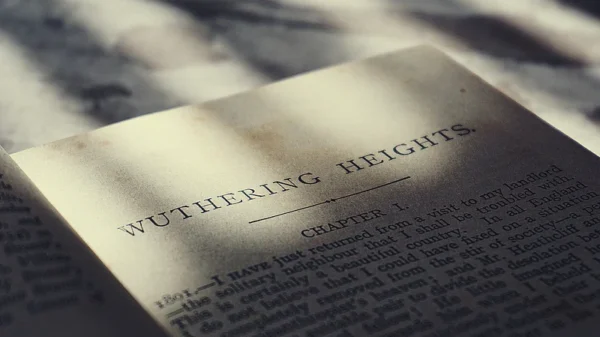Staff Writer Emma DaCosta explores both sides of the “Barbie” debate – “anti-men” or “Feminism for Dummies”?
Since the release of “Barbie”, it has been branded as ‘anti-men’ by conservative figures all over the internet, politics and the media. American right-wing political commentator Ben Shapiro criticised the film in the form of YouTube videos.
These accusations are merely his opinion. The film itself is far from being anti-men. The film’s central plot involves exploration of the effects of a patriarchal society mainly through the character of Ken. The film criticises the patriarchy, not men. The “Barbie” film is anti-patriarchy.
Conservatives have been outraged by the film’s portrayal of men, expressing their disregard for its message of female empowerment. Despite this, there is room for opinion from the other side of the debate, that the feminist message of the film has not gone far enough. Is the film ‘Feminism 101’ as some cinemagoers have branded it?
The anti-men accusations can be attributed to the tendency of the right wing to brand anything pro-women as ‘anti-men’, which is also why the film’s themes of female empowerment have become a target for criticism. However, upon watching and digesting the film, I believe it makes a case for men suffering under the patriarchy as well as women.
This begs the question, how can a film highlighting the struggles of men as part of its main plotline be anti-men?
David Heyman, one of the film’s producers, believes that many men would resonate with the story being told through the Kens. Ken goes on a “journey of self-discovery“, finding out that the patriarchy has perceived benefits for men but it can also be detrimental to them. Ken is more aware of the world around him at the end of the film, which shows strength and growth, not weakness.
As director Greta Gerwig states, this film is for mothers and daughters. So, if that was the director’s intention and opinion, then this film’s target audience is not men and that is okay? If that makes the film be perceived as anti-men (it should not), then let us explore the possibility of it being this way.
The film centres on the female experience and a toy that typically most women encountered in their childhood or later in life. “Barbie” is used to convey a message of female empowerment and it does this through comedic but also emotional scenes. The film has a positive message and is also fun, so what if it can be perceived as ‘anti-men’ for the plot and message?
If we look at other films, in fact, other Margot Robbie films such as “The Wolf of Wall Street” – this could be perceived as being ‘anti-women’. Due to the exploitation and disregard for women in the film. This film portrays women in a certain way but also does not have a clear positive message, it tells the story of stockbroker Jordan Belfort for entertainment and curiosity purposes, not to empower men to begin a life of sleaze and crime (it’s debatable whether this does, in fact, inspire men). What I am trying to say is that many films beyond this example have portrayed women in a negative light. This can and has reinforced stereotypes with no positive point being proven by this portrayal.
Ryan Gosling’s Ken is firstly a comedic and camp character to fit in with the nature of the film. His hilarious portrayal of Ken is to teach a lesson: “The patriarchy serves no one”. So, if this character is viewed as anti-men, at least there is a purpose to it.
Just to be clear – when experimenting with the idea that the film is anti-men, I am playing devil’s advocate to show examples of how films negatively portraying women do not receive outrage of this nature. Ken as a character is nothing of the sort and is wonderfully portrayed by Gosling to aid and enhance the plot and the film overall.
Now, to address the opposite side of the “Barbie” debate – its feminist message and association. Is the feminist message of the film a positive or accurate one?
The history of Barbie and feminism is not one of harmony. In Barbie’s past many feminists disagreed with the representation of women that Barbie portrays. The ‘Barbie’ brand has also not always aligned itself with the term ‘feminist’. In a 1985 female empowerment ad featured a song with the lyrics “We can do anything, right Barbie?“. Supposedly, it was a feminist message, but ‘Barbie’ refused to identify with the feminist label due to the stigma.
Personally, as a 20-year-old woman, the “Barbie” film did not open my eyes to any feminist ideas that I was not already aware of or anything I have not experienced as a woman before. However, seeing it as a child, about to become a teenager, would probably have had a different impact on me. Given the film’s 12A rating, the target audience begins with young teenagers who could benefit from the messaging in the film.
However, to take this further cynically, the approach to the idea of female empowerment in the film is extremely liberal. It addresses only the lighter patriarchal issues facing society, such as body image and relationships, rather than darker issues, such as domestic violence and reproductive rights.
To do a 180-degree turn, I may have already addressed why the issues were on the lighter side when I mentioned the target audience of the film. After all, this is a Warner Brothers blockbuster, not an indie political piece.
My point in addressing the soft nature of the feminism involved is to contrast and disprove the anti-men accusations and show that the film was not radical, as some of the conservative commentaries may assert.
To sum up…
The film is not anti-men but anti-patriarchy. I repeat – the film is not anti-men but anti-patriarchy. The patriarchy may provide men with privileges but also suffering as seen in Ken’s journey. If the film was anti-men, the number of films that could be considered anti-women heavily outnumber this and do not have half as much of a positive lesson to teach.
The feminism in the film may be a bit of a sunshine and rainbows approach. However, does a comedy musical film about a toy have the responsibility of solving the real gender inequality in the world?
Both sides of the argument should probably take some advice from actress Whoopi Goldberg in her notion that “it’s a movie about a doll”.
















